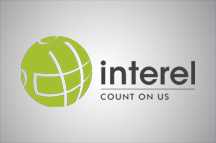 Emmanuel Macron's victory in the French Presidential election halted the progression of populism. However, the new President will face many challenges and can't afford to fail.
Emmanuel Macron's victory in the French Presidential election halted the progression of populism. However, the new President will face many challenges and can't afford to fail.
On the evening of the second round of the French presidential election, the whole world breathed a sigh of relief to see Marine Le Pen defeated (34% vs 66% for Macron), and considered that populism had begun to flow back, after the Brexit and Trump’s victory had taken the opinion by surprise.
Had France ever been close enough to actually swing to a scary populist political experience? Not so sure in fact. But what is obvious is that the French were ready to try something they had never experienced before, that they wanted to send all usual suspects and traditional parties to hell. That they had reached the breaking point and were ready for a revolution. For real.
The new President, Emmanuel Macron, responds to these aspirations expressed by the French people. He is a new face, young, dynamic and optimistic, yet he keeps a distance and restores the symbols and protocol of the Vth Republic to appear “Presidential”, while his predecessor Hollande wanted to be seen as a “normal” President.
 More importantly, Macron considers that the partition between the right and the left has become artificial and he wants to fly it into pieces. For him, the only thing to be considered is whether an idea is good or bad, and if it is useful to improve the situation of the country.
More importantly, Macron considers that the partition between the right and the left has become artificial and he wants to fly it into pieces. For him, the only thing to be considered is whether an idea is good or bad, and if it is useful to improve the situation of the country.
But his political vision goes much beyond the objective of governing with a coalition of traditional parties like in Germany. What he really wants to achieve is the total explosion of the traditional parties (republican and socialist) that were defeated at the election, and a complete reconfiguration of the French political scene. He wants his movement “En Marche”, composed of people who are new to politics, and others who come either from the former right and left, to win an absolute majority in Parliament, and the opposition to be limited to the two extremes, the far left of Jean-Luc Mélenchon, and the far right of Marine Le Pen. Macron’s masterplan might work. The Republican party is already in the process of exploding after Edouard Philippe, Prime Minister from the right was appointed to run the government (which also includes several other ministers from the right or the center). As to the socialist party, it is near to death.
If the enterprise of blasting more than 30 years of French politics and re-building everything from scratch is something that mainly has an impact of the French people, President Macron’s vision is also going to have an impact at European and international level.
Emmanuel Macron is a convinced European. He was the only candidate during the campaign to exhibit a European flag next to the French one at his rallies. He is committed to rebuilding the EU by deepening the integration and making the Eurozone more resilient to the crisis. He wants to reinforce the Franco-German axis and to build a strong Europe of Defense. He is well aware that he will have to restore Germany’s trust in France, which will result from the implementation of a number of economic reforms (on French labor law, corporate taxation, company’s competitiveness) and the respect of the public deficit level. He wants to build a common asylum policy (as discussed with Italian Prime Minister Gentiloni in Paris). He is a “Hard Brexiter” and believes that Brexit will be an economic opportunity for France.
 If Macron is a true European and is in favor of a France open to the rest of the world, he also wants more fairness and appropriate protection when needed: he wants to enhance trade reciprocity and to avoid commercial dumping practices. He wants to revise the posting of workers directive, to lay the foundations of a more social Europe, in order to respond to the strong criticism of the Euro sceptics.
If Macron is a true European and is in favor of a France open to the rest of the world, he also wants more fairness and appropriate protection when needed: he wants to enhance trade reciprocity and to avoid commercial dumping practices. He wants to revise the posting of workers directive, to lay the foundations of a more social Europe, in order to respond to the strong criticism of the Euro sceptics.
Climate change will also be a main driver of Macron’s policy, which is emphasized by the appointment of Nicolas Hulot – the most influential French ecologist, who was key in the success of the COP 21 agreement – as the Minister of Ecological and Fair Transition, number 2 of the government. The idea is that every policy initiative or trade agreement (like the CETA for example) will be assessed against its consequences on environment and health.
Emmanuel Macron has only been President for a few weeks and a lot of challenges are ahead of him. Including that of obtaining a majority at Parliament in June.
His responsibility is huge. He can’t really afford to fail. Because if he does, France will be back in five years to what it just escaped from: a victory of populism…














